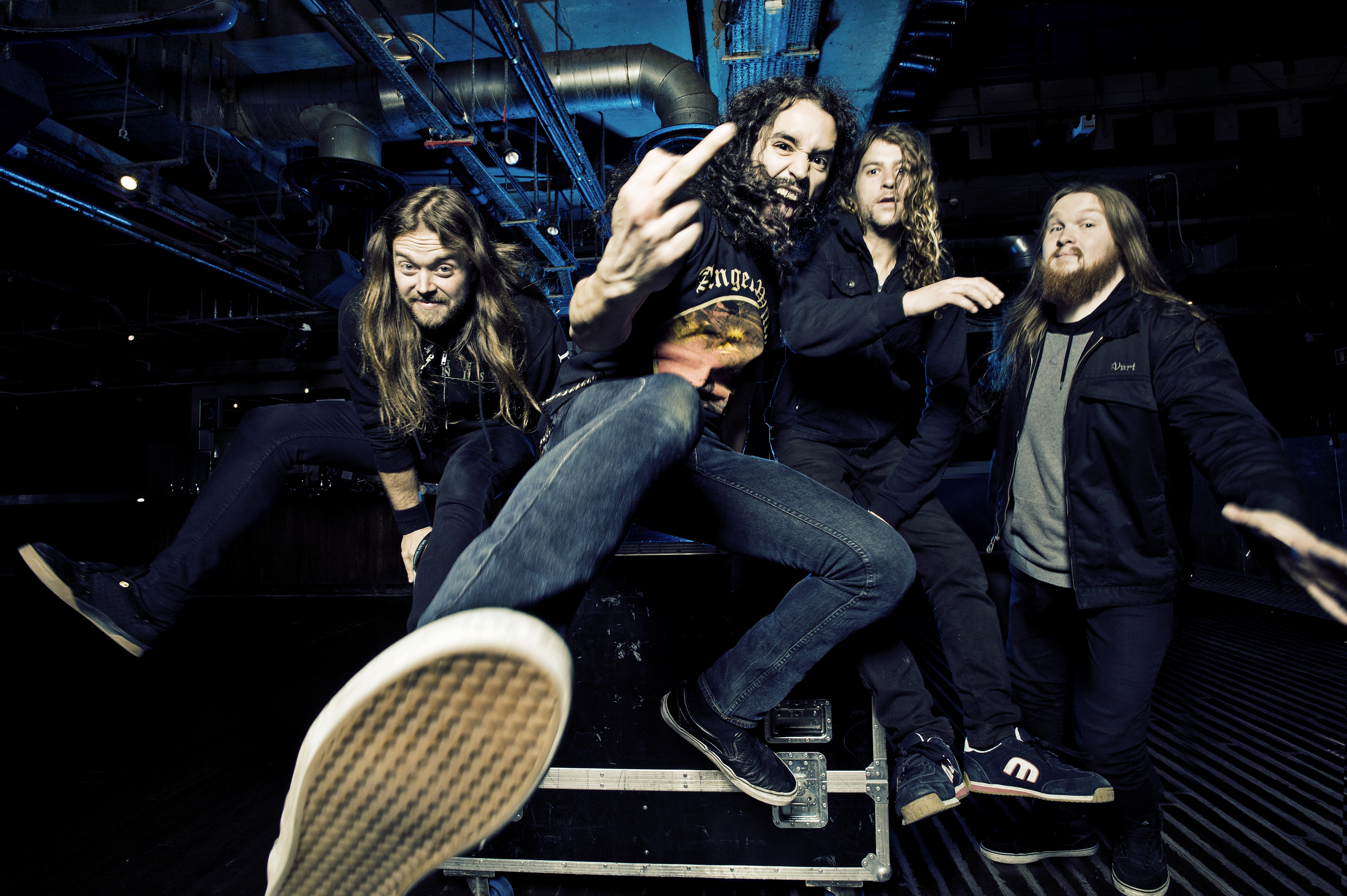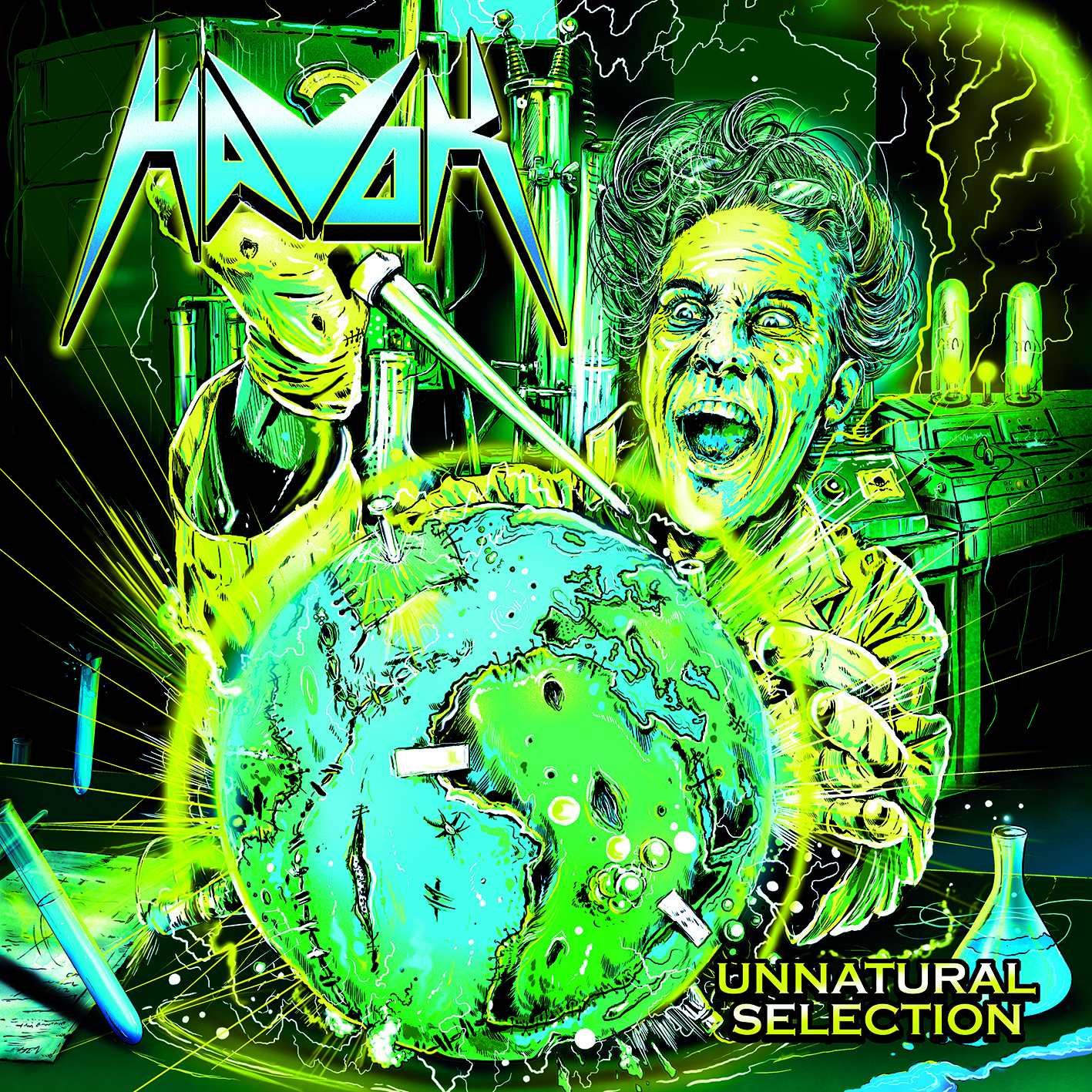Wreaking Havok! A Conversation with David Sanchez
The last few years have brought to the fore what we can only assume is the new generation of thrash. Thirty years removed from it's inception, thrash is showing us a new, young face, one loaded with the promise of upstarts like Havok, out of Denver, Colorado. It is within this unique promise and potential that the band has released their new record "Unnatural Selection." We sat down with frontman and mastermind David Sanchez and discussed his band, their new record, the future of thrash and the scene in the Rockies.
M.DREW: Tell me a little bit about “Unnatural Selection,” because it sounds like your most complete, well rounded album to date. What changed for this writing process?
DAVID SANCHEZ: Well for the writing it was usually between tours, we only had two or three months to write and record the entire thing. As for it being well rounded, I agree with you. That’s because we made a conscious effort to make more songs with different tempos, with a different, groovier vibe. Because tempo is fast practically all the way through, and we’ve already shown that we can play at a million miles an hour, but we wanted to have songs that we could create a roller coaster ride effect throughout our set. We can go fast, we can slam and go back to fast. So yeah, I think that has the most to do with the diversity that’s on “Unnatural Selection.”
M.D: The sound of Havok over the years has been so closely tied to, what most people would consider to be, classic thrash. If you get stuck in a rut writing, do you just reach for the Overkill and look for inspiration there?
DS: Not really. Overkill is one of the first bands I started getting into when I started listening to metal, and I think naturally in my style of writing a lot of it comes across. Overkill, Exodus, Testament, Slayer, Megadeth, Metallica, that’s the shit I learned heavy metal from. So I think that the thrash-y, rip-y element of our band is just from how I learned about metal.
M.D: So, how would you describe the progression that Havok has made musically?
DS: More focused in the song writing and the structures, definitely.
M.D: In what way?
DS: You know, when “Burn” was made I think that there’s a lot of good compositions on that album, the way the songs are built and arranged. But since “Burn” I’ve paid a lot more attention to music, paid a lot more attention to structures, key changes and just movements in music. I think that you can tell, listening to “Time’s Up” on “Unnatural Selection.”
M.D: When you produce your own album, what’s it like to have to separate yourself from “you” the musician, member of the band, to “you” the manager of what it actually sounds like?
DS: There’s not much of a separation because even when we’re not recording I’m kinda that guy in the band that you might expect to be kinda that hard-ass maestro.[Laughs]
M.D: Does that lead to conflict amidst the band?
DS: Not any major conflicts. It’s just as simple as what a coach would tell a fucking baseball player if he was trying to catch ground balls wrong, you know? Just trying to help. It makes the team the best they can be is all I try to do when I’m cracking the whip.
M.D: How confident are you in this current line-up for Havok? Do you feel like the band is well grounded with the members that are in it now?
DS: Yeah, I think that the dudes in the band are great. Everyone’s great on tour, everyone’s great on their instrument, we all get along. That’s all you need.

M.D: Give me the run-down on tours in support of “Unnatural Selection.”
DS: We’re heading out in late July and we’ll round it up in mid-September where we’ll do a North American headline month where we’ll hit the United States, Mexico and Canada, and we’ll be playing about an hour every night and just hooking up with the local bands in their respective cities. After that I’m sure we’ll do some more touring, but nothing is confirmed, as of yet.
M.D: When people think of hotbeds of thrash activity, I don’t think Denver comes to mind first. What’s the music scene in Denver, metal or otherwise?
DS: Denver seems to be putting out a lot of electronic music right now, that’s kind of what’s going forth at the moment. Dubstep and electronic, you know stuff that’s not music, stuff that some asshole made on the computer and makes millions of dollars pressing play. But, as far as metal goes, there are plenty of metal bands here and Denver’s got a great metal scene. I know a lot of bands that tour look forward to Denver because the scenes here are good, and we definitely have a strong metal scene here. But as far as thrash goes, there’s not really much. I’d say we’re a shark in a small pond.
M.D: Going back to the beginning of your career, do you feel like if it hadn’t been for distribution systems incorporated into the internet, and the ability to reach a lot of people in a small window, do you feel like you could have survived as a thrash band in Denver? Or would you have had to relocate?
DS: If it wasn’t for the internet, we wouldn’t be what we are today. There definitely is that. The internet’s been responsible for a lot of our exposure, that’s how a lot of people learned about our band and how a lot of people find out about bands in general.
M.D: Is that an easier road to go down than what you’d imagine it would be like with major label backing and that distribution system? Is it easier to do it yourself?
DS: Not necessarily, because the title says it all “do it yourself”. It’s definitely work. But the major advantage of not having a major label backing you is that you’re not a puppet with a hand up your asshole. You know, you get to do your own thing.
M.D: As thrash passes its 30th anniversary, what do you think the next step for the genre is?
DS: Hopefully it will just continue with awesome riffs and that tight timing shit. But, obviously, the next logical phase – major phase – is going to be when all the bands that have been around forever throw in the towel. It’s bound to happen sometime in the next ten years, I mean any thrash bands that were the original batch of thrash metal bands, I think we are going to see all of them disappear.
M.D: Now, I’m going to put you on the spot here; do you think that that’s overdue?
DS: In some cases.
M.D: Is there anything else you’d like to add?
DS: Yeah, just credits on the album: it was produced by myself and the band, mixed by Terry Date, it was mastered by James Murphy. And in closing, I’d just like to say to anyone who’s ever come to a Havok show, or bought a CD or a shirt, or told your friends about the band, thank you very much. Because without you guys, we wouldn’t exist. We wouldn’t be here, where we are today. Other than that, support music and think for yourself, because lots of good things will come from doing those things.


